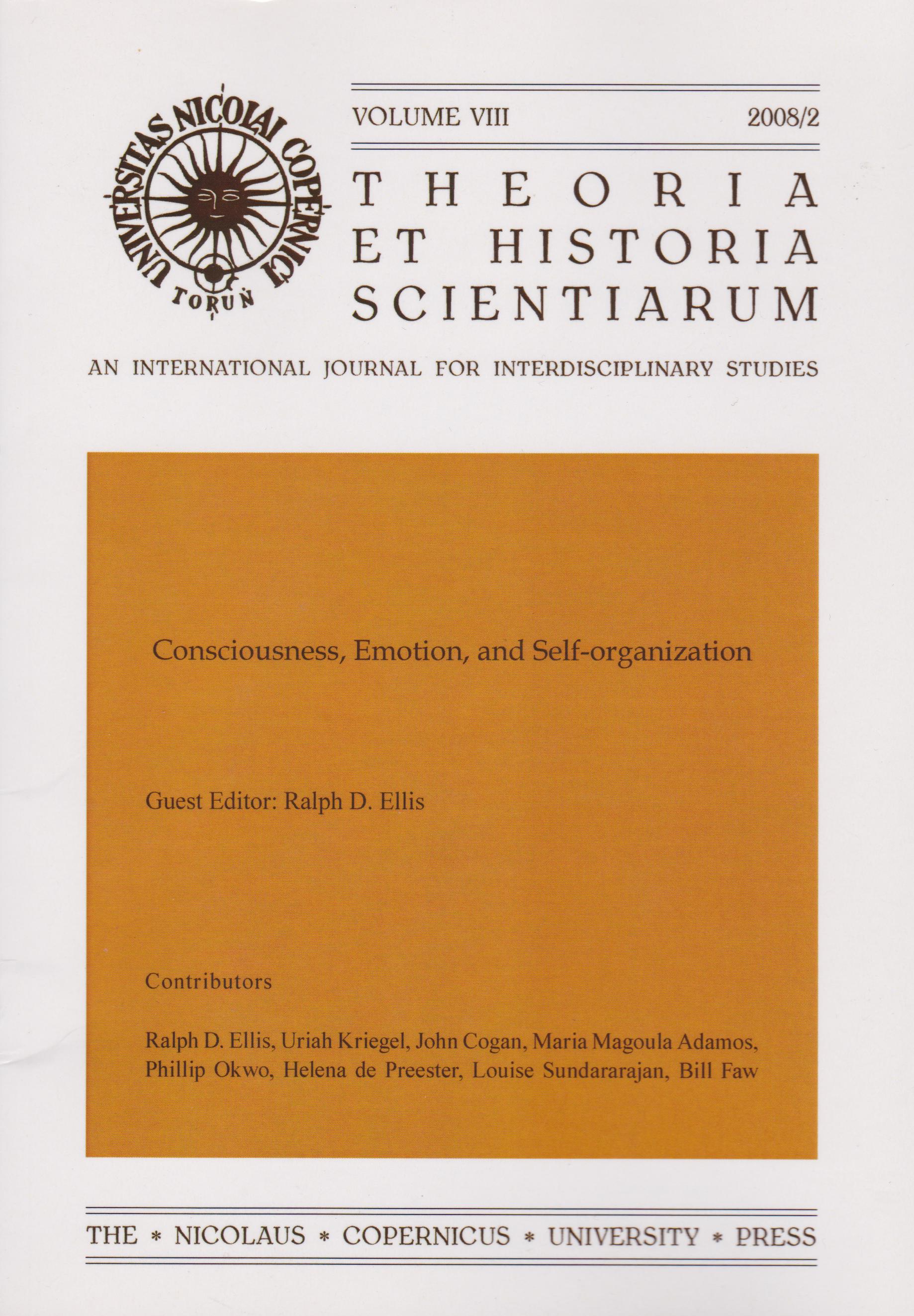Are the Research Strategies of Philosophy Suited to the Study of Emotion
DOI:
https://doi.org/10.12775/ths.2008.018Keywords
philosophy, emotions, Edmund Husserl, MBTI® inventoryAbstract
In this essay I will claim that some methodologies of western philosophy have failed us in the matter of understanding emotion insofar as they have omitted key features of the emotional experience in their accounts of emotion. I will claim that this is due to a kind of blindness that is at work in philosophy; a blindness that is a systemic blindness towards feeling. I will also suggest that an initial step that might be taken towards correction of this situation would be to adopt the ideal of rigor promoted by the phenomenologist Edmund Husserl.References
Cogan, J.M. (1994). A place for emotion in critical study. Human Studies, 17: 277-284. Cogan, J.M. (1995). Emotion and Sartre’s two worlds. Journal of Phenomenological Psychology, 26: 21-34.
Cogan, J. M. (2003). Emotion and the growth of consciousness: Gaining insight through a phenomenology of rage. Consciousness and Emotion, 4 (2): 205-239.
Green, H. O. (1992). The Emotions: a Philosophical Theory. Dordrecht: Kluwer Academic Publishers,
Husserl, E. (1965). Phenomenology and the Crisis of Philosophy. New York: Harper & Row.
Jung, C. G. (1990). From “Psychological types.” In V. de Laszlo (ed). The Basic Writings of C. G. Jung (187-297). Princeton: Princeton University Press.
Oatley, K. 1992. Best Laid Schemes. Cambridge: Cambridge University Press.
Pascall, B. 1978. The Thoughts of Blaise Pascal. Garden City, N. Y: Dolphin Books. repr., Westport, Conn.: Greenwood Press, Inc.
Roberts, R. C. 2003. Emotions: An Essay in Aid of Moral Psychology. Cambridge:
Cambridge University Press.
Sartre, J. P. 1948. The Emotions: Outline of a Theory. New York: The Wisdom library a division of Philosophical Library.
Downloads
Published
How to Cite
Issue
Section
Stats
Number of views and downloads: 480
Number of citations: 0



